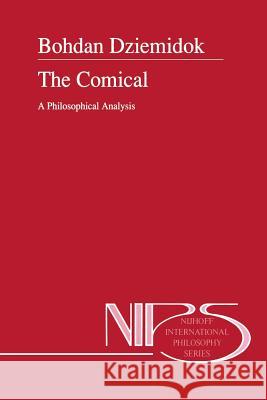The Comical: A Philosophical Analysis » książka
The Comical: A Philosophical Analysis
ISBN-13: 9789401047241 / Angielski / Miękka / 2012 / 211 str.
The problem of the comical is one of the most interesting issues in aesthetics. Its significance extends well beyond the sphere of aesthetic studies and has at tracted the attention of the scholars working in other fields such as the theorists and historians of particular art forms, sociologists, psychologists, as well as anthropologists, ethnographers and the theorists of education. Philosophy has devoted a lot of attention to the comical. Since Aristotle al most every philosopher has felt obliged to comment on this question. However, even though they have offered a number of accurate observations on the subject, the philosophers involved in the discussion about the comical have earned a reputation of being rather devoid of the sense of the comical and many a time their considerations have been compared to those of a blind man talking about colours. And yet the problem of the comical kept attracting them to such an ex tent that they paid no heed to the difficulties involved and neglected the risk of becoming ridiculous themselves. Adolf Zeissing once remarked that all the litera ture on the comical is a "comedy of errors" committed while defining the comi cal. Yet even he could not resist the temptation of adding another page to this "comedy of errors." Tadeusz Boy-Zeleriski claimed that the good thing about the philosophical writing concerning the comical is that it offers not only the theory of the comical but at the same time is the theory's practical application.











